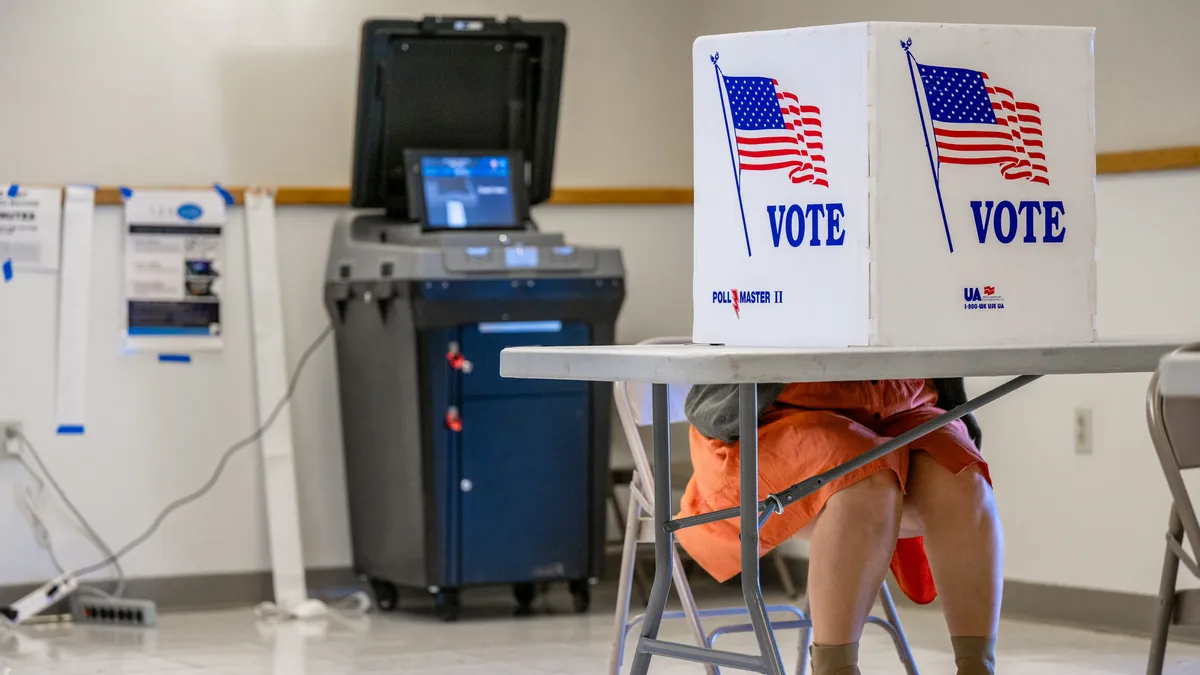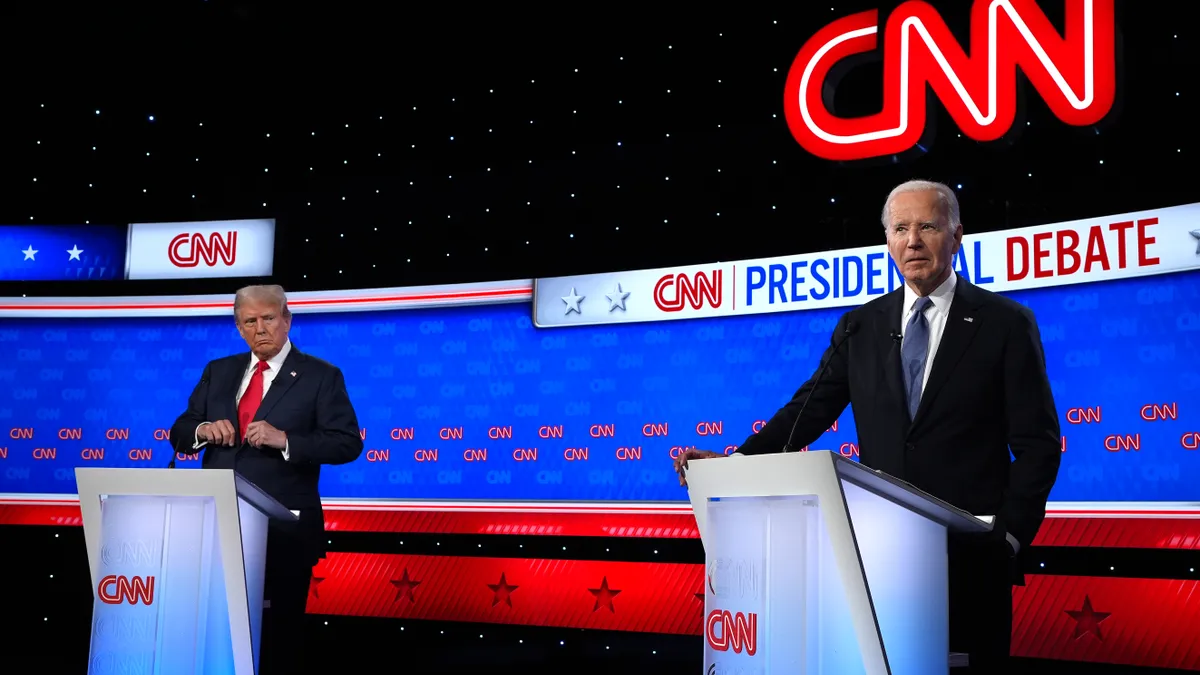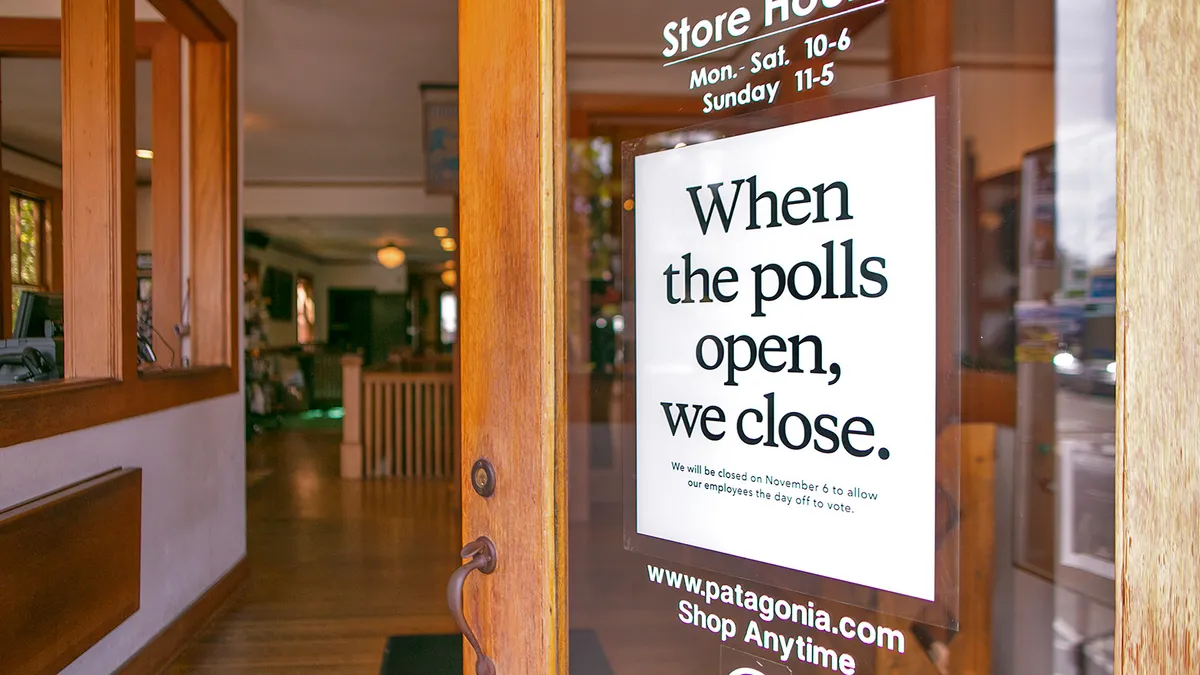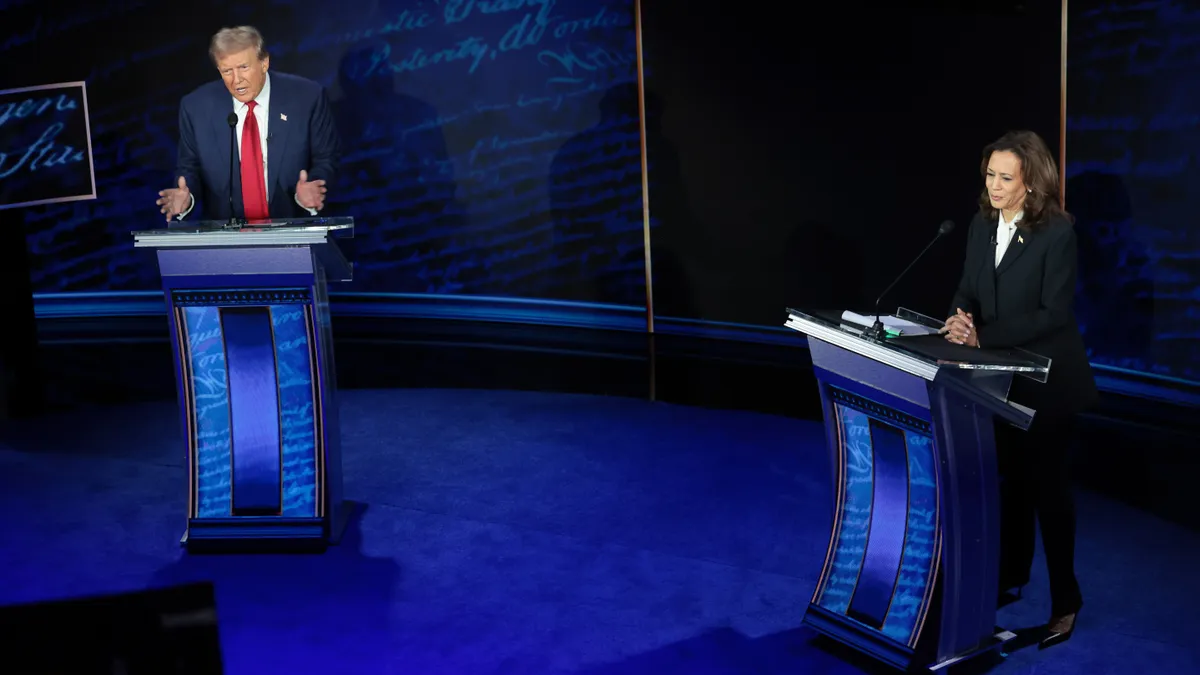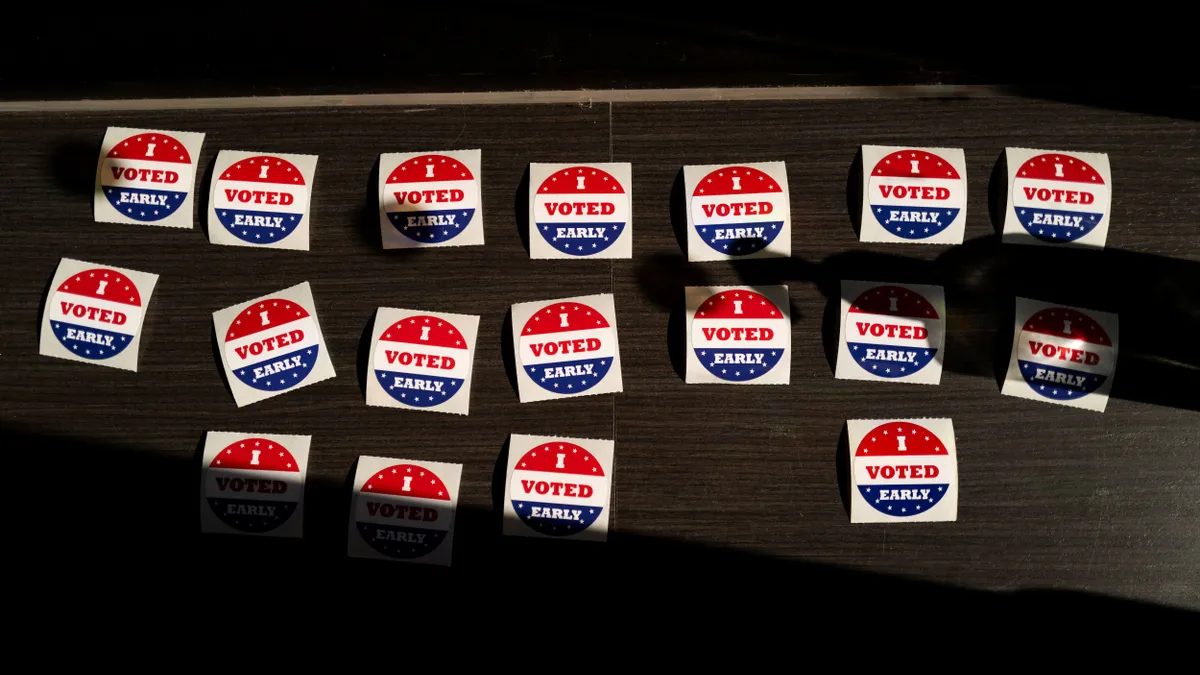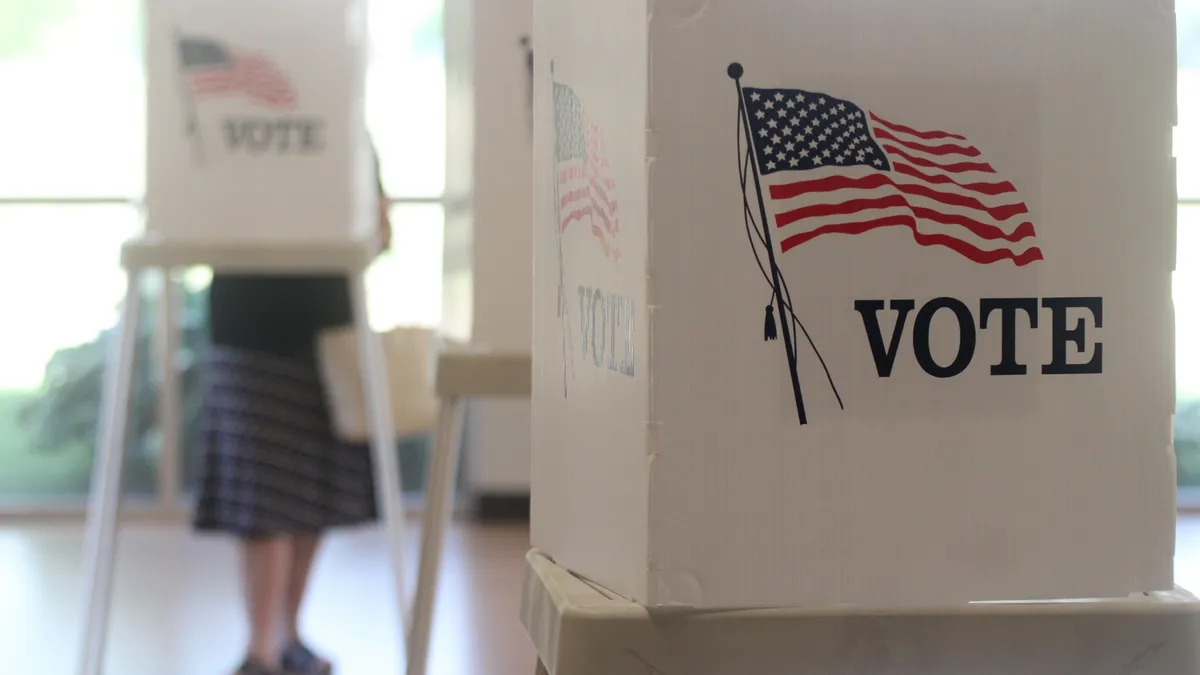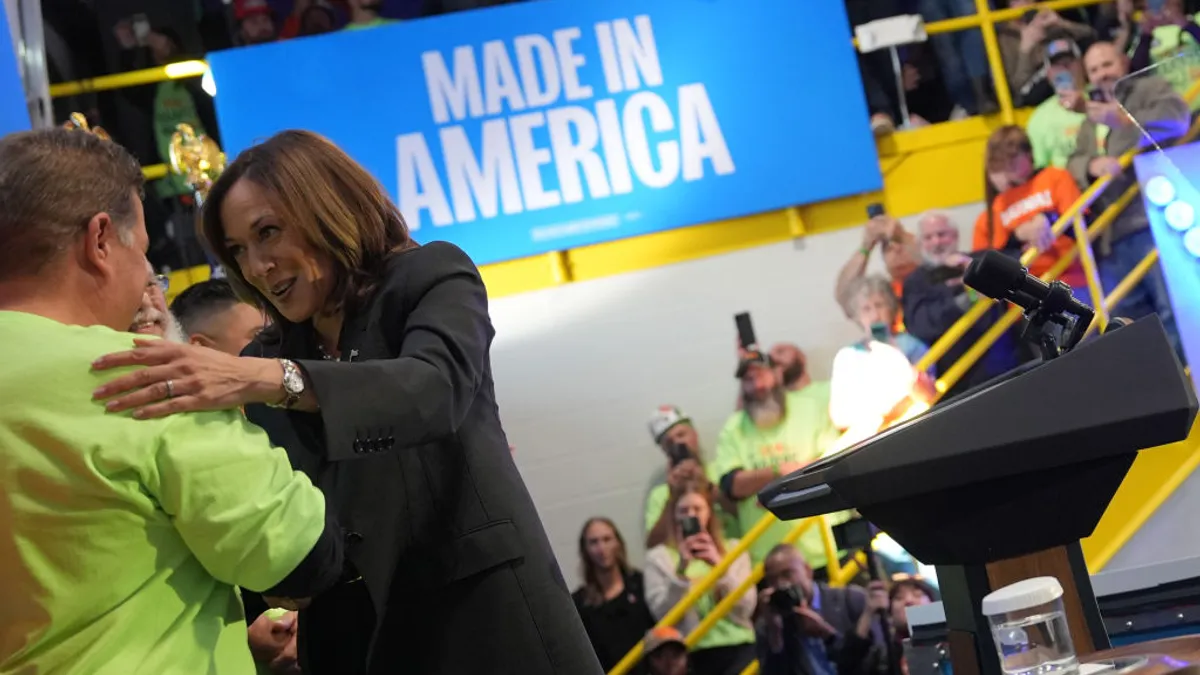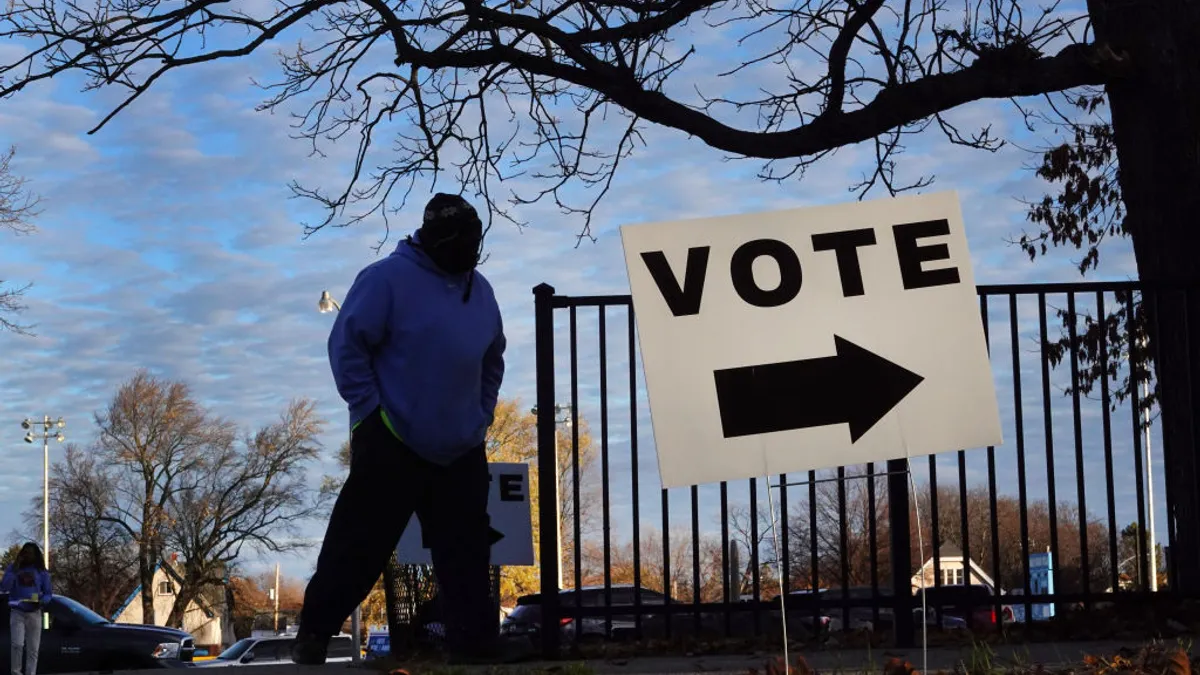Although 3 in 4 Americans say they want businesses to maintain political neutrality in the workplace, more than half surveyed last month said companies and their leaders should speak out against political violence, according to a July 16 report from communications firm Weber Shandwick.
Most workers also said their employers shouldn’t contribute to political action committees or candidates nor sponsor or attend the Republican National Committee or Democratic National Convention during the 2024 election cycle.
However, adults across political parties and ideologies expressed fears that the election will undermine democracy, and 69% said businesses should take a stand to protect democracy.
“While there is nuance in how and whether employees and consumers expect business to insert itself this election cycle, it is clear that Americans — under escalating fears around democracy and political violence — expect business to be a stabilizing force,” Pam Jenkins, chief public affairs officer for Weber Shandwick, said in a statement.
“How, when, and where business leaders do so will be carefully watched in the coming months,” she added.
In the survey of 1,007 U.S. adults conducted between June 14-16, 78% agreed that businesses should encourage a free and fair election, as well as a peaceful transfer of power. In addition, 59% said businesses should help find common ground to bridge societal divisions.
More than half said both businesses and their leaders should denounce political violence, even before the apparent attempted assassination of former President Donald Trump on July 13.
On the other hand, only 28% said their employers have taken steps to keep the workplace politically neutral, and 19% said their company implemented policies and guidelines for a civil workplace.
As of June 16, 8% said their leaders had denounced political violence.
Although employees seem unlikely to quit their jobs due to a company’s political stance, they remain split on whether to engage in political discourse at work, according to a HiBob survey. Many respondents said they’re more hesitant to share their views with colleagues, which “underscores a strong consensus for maintaining neutrality in the workplace,” HiBob’s CEO said.
To mitigate risk, though, employers should address workplace political disputes proactively, a Gunster attorney wrote for HR Dive. In particular, HR pros can craft clear policies and train supervisors to prevent problems, she said.
In fact, employers should consider designating an HR team member to help with heated conversations during the election season, a partner at Fisher Phillips previously told HR Dive. Companies should be mindful of the law, remain consistent across policies and promote civility and professionalism, he said.







